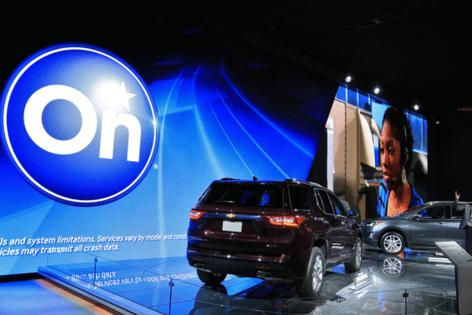FTC to ban GM from sharing connected vehicle data with consumer reporting agencies
Published in Business News
The Federal Trade Commission will ban General Motors Co. from sharing customer geolocation and driver behavior with consumer reporting agencies for five years under a newly proposed order settling the commission's allegations.
This is the FTC's first action related to connected vehicle data, according to a news release. The agency alleged that GM and its OnStar technology through its now-discontinued Smart Driver program collected and sold drivers' location and driving history information from millions of vehicles without adequately notifying consumers and obtaining their consent. Such information can affect insurance rates.
“GM monitored and sold people’s precise geolocation data and driver behavior information, sometimes as often as every three seconds,” FTC Chair Lina Khan said in a statement. “With this action, the FTC is safeguarding Americans’ privacy and protecting people from unchecked surveillance.”
The order, which GM says will last 20 years, also requires that GM receive affirmative consent to collect connected vehicle data with exceptions like location information for first responders. Consumers also must be able to disable precise geolocation tracking and opt out of the collection of geolocation and driver behavior data.
They also must be able to obtain their data, which as of September wasn't available, and delete it. Now, GM customers in all 50 states can submit a privacy request form online to seek their data. They also can call 866-MYPRIVACY, or 866-697-7482.
"Although Smart Driver was created to promote safer driving behavior, we ended that program due to customer feedback," the automaker said in a statement posted on its website. "Last year, we discontinued Smart Driver across all GM vehicles, unenrolled all customers, and ended our third-party telematics relationships with LexisNexis and Verisk. In September, we consolidated many of our U.S. privacy statements into a single, simpler statement as part of our broader work to keep raising the bar on privacy."
The automaker added: "The FTC consent order includes new measures that go above and beyond existing law, while capturing steps we’ve already taken to establish choices for customer data collection and communications about how the information is used."
OnStar offers assistance in an emergency, hands-free voice assistance and real-time traffic navigation. Over time, the company increased the amount of data it collects through the technology, including precise location information. That can reveal a daily routine or some of the most intimate details of a person's life, according to the FTC, including going to a medical facility. It also included instances of hard braking, late-night driving and speeding. The company marketed Smart Driver as a way to improve driving practices.
The FTC alleged that the enrollment process for data collection for OnStar and Smart Driver was "confusing and misleading," and some consumers were unaware they had been enrolled, according to the news release. The agency said the Detroit automaker didn't clearly disclose the kind of data collected and that it would be sold to consumer reporting agencies that compile credit reports on consumers, which insurance companies can use to deny service and set rates.
A description of the consent agreement will appear in the Federal Register. The deal will be subject to public comment for 30 days after publication before the order is finalized.
©2025 www.detroitnews.com. Visit at detroitnews.com. Distributed by Tribune Content Agency, LLC.












Comments